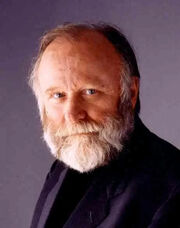m (clean up, typos fixed: full time → full-time) |
No edit summary Tag: rte-source |
||
| (4 intermediate revisions by 4 users not shown) | |||
| Line 15: | Line 15: | ||
Not surprisingly considering this bold approach, Herbert initially had difficulty finding a willing publisher for ''Dune''. Eventually, the Chilton Book Company picked up the work and released it to critical acclaim. In 1965 ''Dune'' won the ''Nebula Award'' for Best Novel, and in 1966 it shared the ''Hugo Award''. |
Not surprisingly considering this bold approach, Herbert initially had difficulty finding a willing publisher for ''Dune''. Eventually, the Chilton Book Company picked up the work and released it to critical acclaim. In 1965 ''Dune'' won the ''Nebula Award'' for Best Novel, and in 1966 it shared the ''Hugo Award''. |
||
| − | Despite the relative success of ''Dune'', it took several more years before Frank Herbert could become a financially secure full-time novelist. Herbert went on to write 20 more full-length novels, including five more in the ''Dune'' series, and in 1984 witnessed '''Dune''' become a major motion picture.[[ |
+ | Despite the relative success of ''Dune'', it took several more years before Frank Herbert could become a financially secure full-time novelist. Herbert went on to write 20 more full-length novels, including five more in the ''Dune'' series, and in 1984 witnessed '''Dune''' become a major motion picture.[[File:Frank Herbert - Interview on TV|thumb|left|300px|Frank Herbert: "About Dune".]] |
| − | Frank Herbert died of pancreatic cancer in Madison, Wisconsin, on February 11, 1986. He was survived by his son [[Brian Herbert]] |
+ | Frank Herbert died of pancreatic cancer in Madison, Wisconsin, on February 11, 1986. He was survived by his son [[Brian Herbert]]. |
== See also == |
== See also == |
||
| Line 29: | Line 29: | ||
*[http://en.wikipedia.org/wiki/Frank_Herbert Frank Herbert] - Wikipedia entry for Frank Herbert. |
*[http://en.wikipedia.org/wiki/Frank_Herbert Frank Herbert] - Wikipedia entry for Frank Herbert. |
||
| + | |||
| + | [[de:Frank Herbert]] |
||
| + | [[it:Frank Herbert]] |
||
| + | [[ru:Фрэнк Герберт]] |
||
[[Category:Authors|Herbert, Frank]] |
[[Category:Authors|Herbert, Frank]] |
||
[[Category:Behind the Scenes]] |
[[Category:Behind the Scenes]] |
||
Revision as of 08:29, 26 August 2016

| This page uses Creative Commons Licensed content from Wikipedia (view authors). |
Frank Herbert was an American author, and the creator of the Dune novels and its vast fictional universe.
Herbert was born in Tacoma, Washington in 1920. From an early age he had literary ambitions, and worked as a journalist and a photographer before pursuing a career as a writer. His early work consisted of short science-fiction stories.
In 1959 he began research for his novel Dune, which he completed in 1965. As with his earlier work, he extended his science-fiction writing beyond the superficial predictions and plots that were common at the time, and adopted complex psychological, social and environmental themes that resulted in greater depth and subtlety.
In Dune and its sequels - and indeed in most of his novels - Herbert explored numerous themes: politics, the power of love, facets of conflict, human survival, lessons from history, the power of genetics, the complexity of human relationships, and the family, to name but a few. Perhaps the most pervasive theme in the Dune series, was the optimistic view of human potential. In the various schools in the Dune universe, i.e., the Bene Gesserit, the Suk School, the Spacing Guild, the Mentats, each represented explorations of hitherto untapped human potential, and taking it to its logical, if fantastical, conclusion.
Not surprisingly considering this bold approach, Herbert initially had difficulty finding a willing publisher for Dune. Eventually, the Chilton Book Company picked up the work and released it to critical acclaim. In 1965 Dune won the Nebula Award for Best Novel, and in 1966 it shared the Hugo Award.
Despite the relative success of Dune, it took several more years before Frank Herbert could become a financially secure full-time novelist. Herbert went on to write 20 more full-length novels, including five more in the Dune series, and in 1984 witnessed Dune become a major motion picture.

Frank Herbert - Interview on TV
Frank Herbert: "About Dune".
Frank Herbert died of pancreatic cancer in Madison, Wisconsin, on February 11, 1986. He was survived by his son Brian Herbert.
See also
- Frank Herbert Timeline - Chronology of FH's life and work.
- Dreamer of Dune - Brian Herbert's biography of his father
- Frank Herbert By Timothy O'Reilly
- Frank Herbert (Touponce Book)
External links
- Frank Herbert - Wikipedia entry for Frank Herbert.
